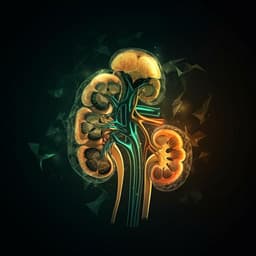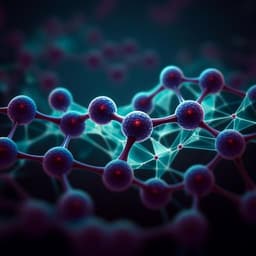
Medicine and Health
An integrated network representation of multiple cancer-specific data for graph-based machine learning
L. Pu, M. Singha, et al.
This innovative research conducted by Limeng Pu, Manali Singha, Hsiao-Chun Wu, Costas Busch, J. Ramanujam, and Michal Brylinski unveils a breakthrough in predicting cancer cell line responses to drug treatments using genomic data. By leveraging a unique graph reduction algorithm, the study enhances prediction accuracy through advanced feature representation, showcasing the power of non-Euclidean data in cancer pharmacotherapy.
Related Publications
Explore these studies to deepen your understanding of the subject.







